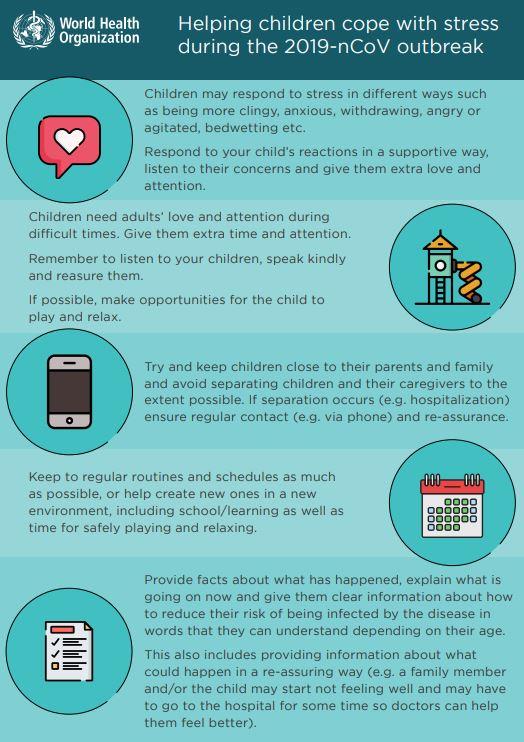Being a parent is hard right now. Your children may be at home or might be going to school some or all of the time. You might be working or you might be at home. You might have embraced home schooling or decided that spending time together doing things you enjoy is more important. You know your family best so do what works for your family.
There are some things you can do which might be helpful.
Children and young people cope with stress in different ways. Here is some information from the World Health Organisation about how to support their wellbeing during these stressful times.

 Coronavirus has changed all our lives at the moment. The speech and language therapy team are aware that life is a bit different and more stressful than usual.
Coronavirus has changed all our lives at the moment. The speech and language therapy team are aware that life is a bit different and more stressful than usual.
Calm communication with children is important all the time, but even more so now. To give you some support, the speech and language therapy team would like to encourage all families to follow some simple but effective advice. This can really help to keep children calm and secure by using a positive communication style.
Firstly, it really helps if all children have:
The next thing to think about is the style of communication and the words you use. Using calm words and watching how you say them will make a big difference. This will help to stop children getting angry, overwhelmed or acting out.
Remember, Use calm words and watch how you say them.
![]()
Parent Club offers up-to-date guidance from the Scottish Government on your child’s health and education. It’s full of hints and tips from other parents and carers who’ve been there before. It also has advice to help you look after your own wellbeing and to point you in the direction of the support available.

While we know you may be under different pressures right now, you might be interested in looking at this free online parenting course for parents and carers of children aged 0 to 19. The course aims to help parents and carers understand their child’s development, support them emotionally and improve their relationship. For more details and to sign up visit Ourplace and use the code ‘tartan’ to gain free access.
Children 1st Parentline A helping hand for every family in Scotland. Do you feel like you’re at the end of your tether? Children 1st Parentline is here for you and your family.